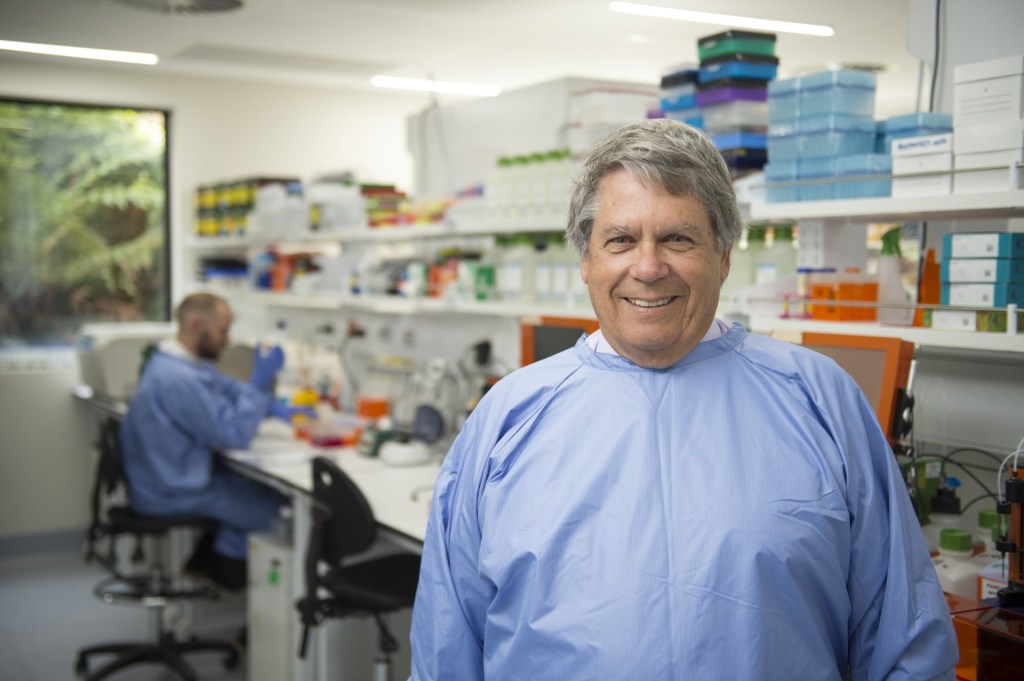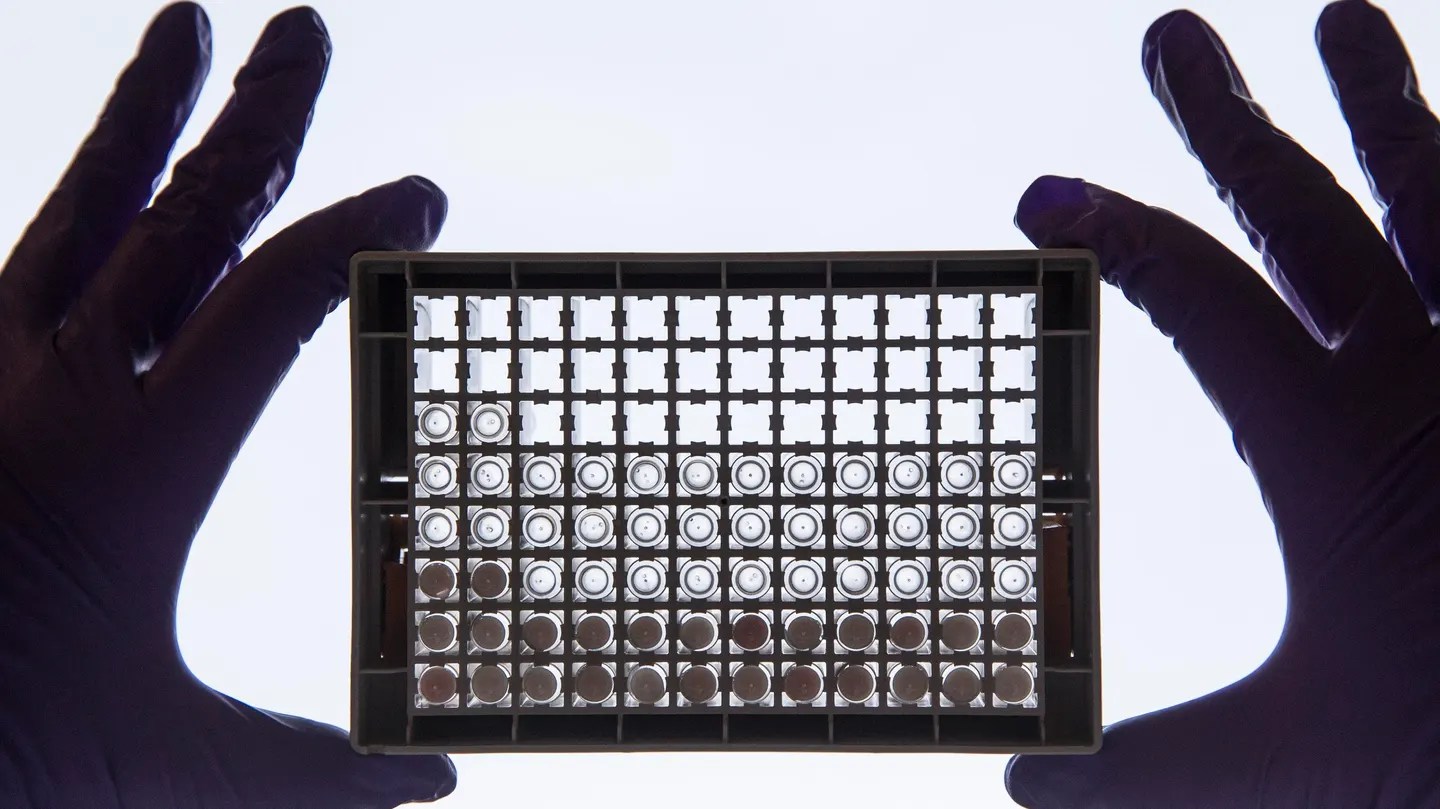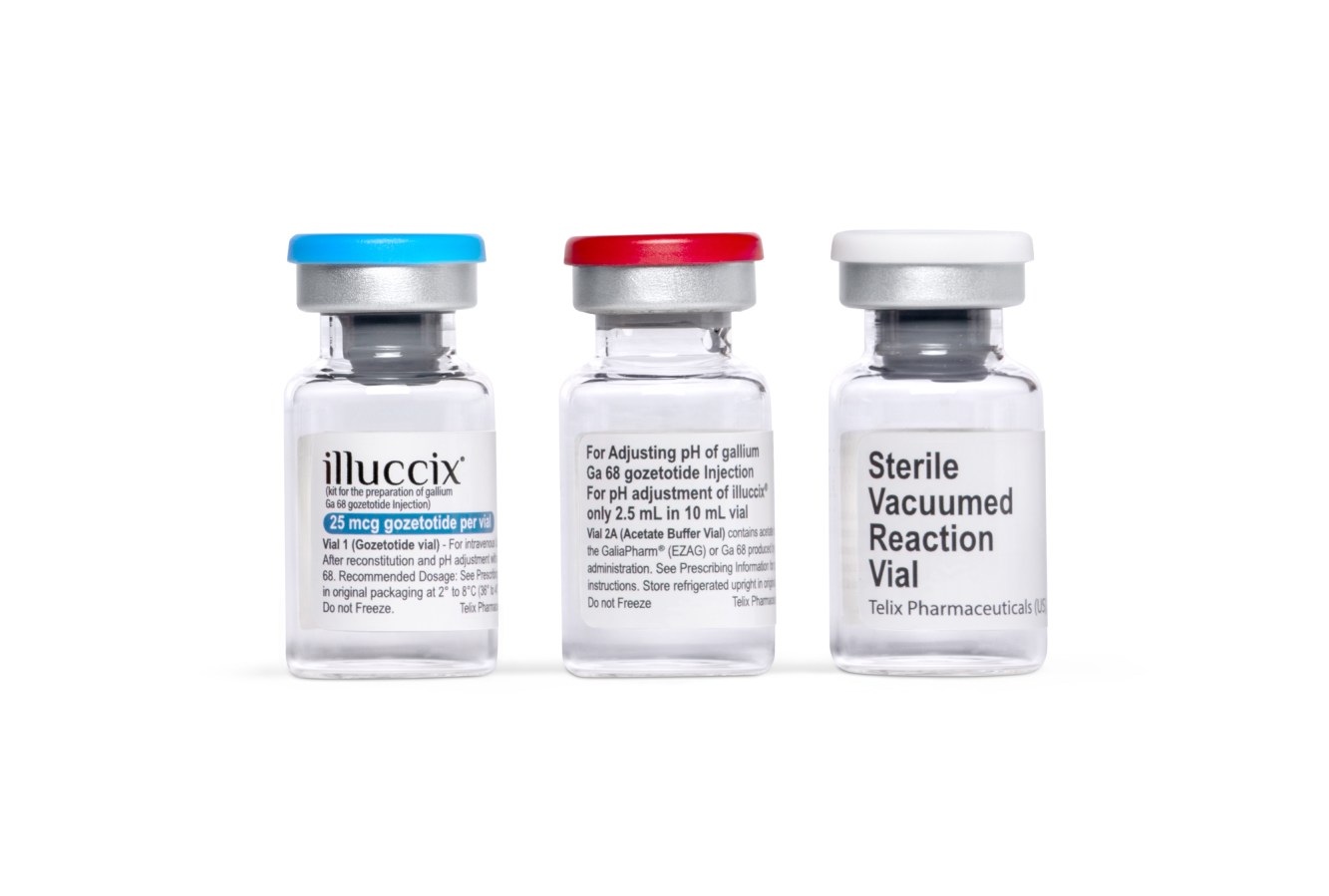With preclinical success behind them, Cartherics is set to begin human trials of its cutting-edge CAR-NK cell therapy, aiming to deliver new hope for ovarian cancer patients and expand treatment possibilities for other cancers and diseases.

Monash University emeritus professor Alan Trounson founded the Monash Immunology and Stem Cell Laboratory twenty years ago. Today, he is the founder and CEO of Cartherics, a biotechnology company based in Melbourne making strides toward developing an innovative treatment for ovarian cancer.
“If the trials are successful, this may become the front line for ovarian cancer treatment, providing a viable therapy for the control of this dangerous disease that has very low survival rates in patients diagnosed with this cancer. Since it is an off-the-shelf therapy, patients could have ready access to this treatment,” says Trounson.
The treatment involves using stem cells taken from umbilical cord blood. Cartherics states that CTH-401 – its lead cell therapy product – is effective in killing ovarian cancer cells in tissue cultures and animals. Next, is a clinical trial that involves humans.
“We manufacture billions of cells from umbilical cord blood-derived stem cells and in the clinical trial will deliver high doses of them to the site of ovarian cancer in the pelvic cavity, over two months. Based on our promising preclinical results, we expect these CAR-NK cells to control any ovarian cancers in this region of the body where ovarian cancer multiplies,” says Trounson.
Cartherics announced it closed an oversubscribed $15 million fundraising round this week and will now proceed with clinical trials.
“This is a first-in-human study that we expect to show cancer destruction and control when we approach the maximum therapeutic dose levels,” says Trounson. “The CAR-NK therapy targets TAG-72, an antigen that is expressed on more than 90% of ovarian cancer cells and has a gene knock-out that can prevent the tumour from inhibiting the killing capacity of immune cells.”
What is CAR-NK CTH-401?
CAR stands for chimeric antigen receptor and NK for natural killer cell.
“CTH-401 is the only natural killer (NK) cell product currently under development that incorporates a chimeric antigen receptor (CAR) that targets the adenocarcinoma specific antigen, TAG-72,” Cartherics states.
Bob Moses, Cartherics’ Chairman says the company is eager to move forward with the clinical trial for CTH-401 and that preclinical studies have shown promising results.
“This important milestone underscores our commitment to delivering innovative treatments for ovarian cancer and highlights the confidence our investors have in our vision to enhance patient outcomes and drive growth,” says Moses.

Prophecy Market Insights values the natural killer cell therapeutics market at $500 million this year, and projects it will grow at CAGR of 41.70% to reach $16.5 billion by 2034.
It is a “promising area of immunotherapy focused on harnessing the innate immune system’s ability to recognise and eliminate abnormal cells, including infected cells and cancerous cells,” according to the research company.
How prevalent is ovarian cancer?
Around 3 in 100 Australian women who have cancer have ovarian cancer, the Royal Women’s Hospital states. According to Cancer Australia, ovarian cancer was diagnosed in 1,786 women in Australia last year. Between 2015 and 2019 the chance of surviving at least 5 years was 49%.
More than a thousand Australian women lost their lives to the disease in 2023.
Globally, there were 324,603 new cases of ovarian cancer in 2022. Sixty-one thousand of those cases were in China, according to the World Cancer Research Fund International. More than 47,000 were in India.

Melbourne-based Cartherics states its mission is broader than ovarian cancer. Instead it is to ‘develop immune stem cell therapies for the treatment of cancer and other diseases.’ The work the company is doing to treat ovarian cancer currently may lead to breakthroughs with other forms of cancer.
Can CAR-NK also treat endometriosis and breast cancer?
Trounson says that theoretically, the treatment it is testing may be applied more broadly.
“The target TAG-72 is expressed by other cancers known as adenocarcinomas. These include many of the cancers of internal organs such as pancreatic, gastric, liver, kidney, prostate etc. These may be targets in the future,” says Trounson.
Further work is also being done on diseases that specifically target women.
“We are also examining whether this CAR-NK or another we are developing will destroy endometriotic lesions in the pelvic cavity (endometriosis) and triple-negative breast cancer for which there are very few therapies available.”
Look back on the week that was with hand-picked articles from Australia and around the world. Sign up to the Forbes Australia newsletter here or become a member here.


